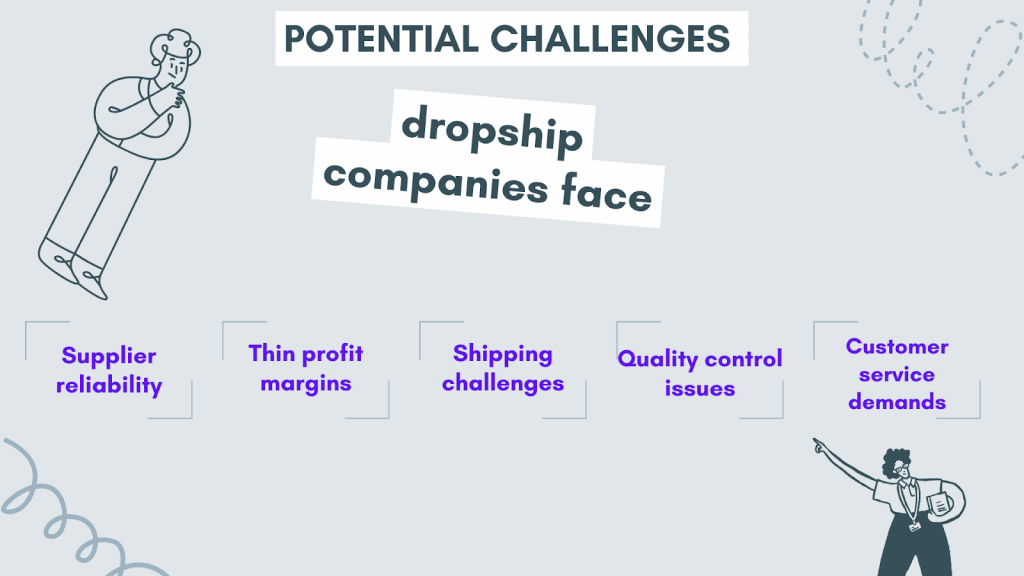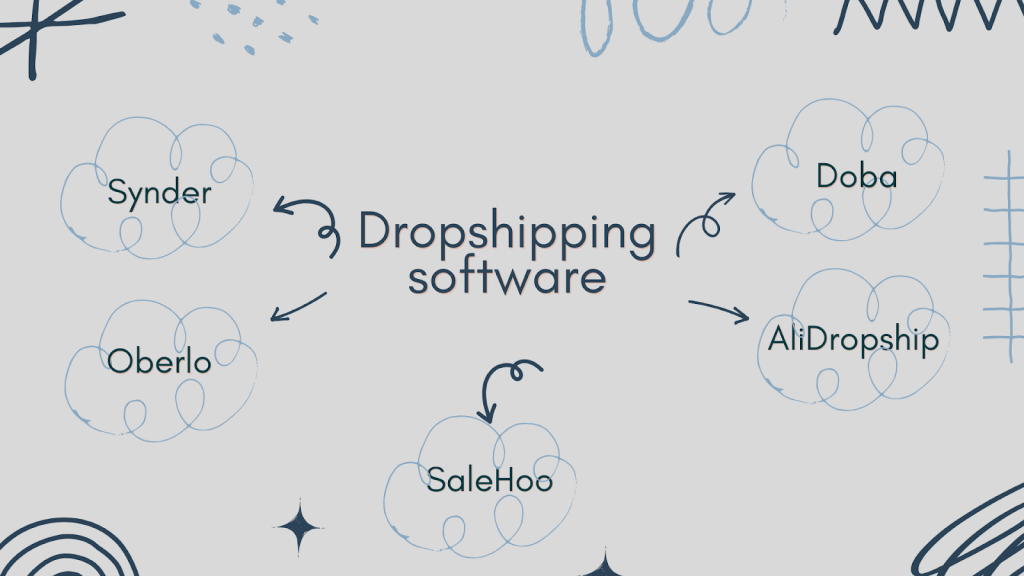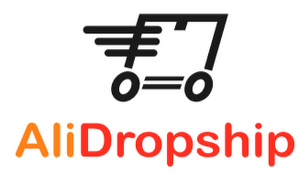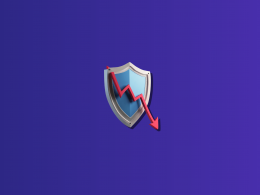Dropshipping is a popular ecommerce business model where a seller partners with a supplier to fulfill customer orders. However, managing it can be challenging. Dropshipping software offers efficient inventory management, easy order tracking, and automated returns management.
Below, we’re looking at dropshipping software in more detail and exploring how to choose the right solution to fit your business needs and budget.
In this article we’ll take a closer look at:
2. Potential challenges dropship companies face
3. 5 popular dropshipping software to consider
4. How to choose the right software for dropshipping?
5. Benefits of using dropshipping software
What is dropshipping?
Before getting to dropship software, let’s define dropshipping and how it differs from other types of ecommerce.
Dropshipping is a type of retail approach that doesn’t imply businesses to stock the products they offer. Instead, when a sale occurs, the product is purchased from a third party, who then directly ships it to the buyer. This method eliminates inventory management, making it appealing for entrepreneurs with limited resources.
In contrast to traditional retail, dropshipping requires a lower initial investment, allowing business owners to focus on building their online presence. Global market reach is another advantage, as products are shipped directly from suppliers to customers, enabling businesses to tap into international markets without physical locations in different regions.
Dropshipping differs from other ecommerce models by relieving sellers from the burden of inventory handling. Unlike traditional businesses following the inventory-based model, drop shippers operate more flexibly, emphasizing marketing, customer acquisition, and online store management without the constraints of physical product storage.
Potential challenges dropship companies face
While dropshipping offers a streamlined entry into ecommerce, it’s not without its challenges. Entrepreneurs venturing into this business model should know these hurdles to make informed decisions and ensure long-term success.

Supplier reliability
One of the critical challenges in dropshipping is finding reliable suppliers. Your business success hinges on the ability of your suppliers to consistently deliver quality products promptly. Inconsistent product quality or delayed shipments can lead to customer dissatisfaction and harm your brand’s reputation.
Thin profit margins
Dropshipping is known for its low entry barriers, but this comes at a cost. The profit margins in dropshipping are typically thin, as businesses act as middlemen between customers and suppliers. The fierce competition in the ecommerce landscape can further squeeze these margins, making it essential for entrepreneurs to manage their expenses and pricing strategies more efficiently.
Shipping challenges
Shipping can be a logistical minefield in dropshipping. Longer delivery times, especially when sourcing products internationally, can result in customer complaints and potential order cancellations. Additionally, tracking and managing shipments from various suppliers can become complex, impacting your ability to provide accurate delivery estimates to customers.
Quality control issues
Without direct control over inventory, ensuring product quality can be challenging. Businesses must rely on the accuracy and reliability of suppliers. If customers receive subpar products, it becomes the seller’s responsibility, potentially leading to returns, refunds, and negative reviews.
Customer service demands
Effective customer service becomes paramount in dropshipping. Handling customer inquiries, concerns, and returns requires meticulous attention, as dissatisfied customers can quickly tarnish your brand. Responding promptly and professionally is crucial to maintaining a positive customer experience.
So, when entering dropshipping, you might want to be prepared to overcome these challenges and use all the tools possible to help you.
5 popular dropshipping software to consider
Below, we gathered several solutions that might address those challenges and help manage the dropshipping business effectively. Some of these solutions are purely dropshipping management software and some bare dropshipping-related features as a part of their extended functionality.

1. Synder – ecommerce software for accounting and business management

Synder is a comprehensive solution that will provide dropshipping businesses looking to streamline their accounting and bookkeeping processes with a user-friendly interface and a variety of useful features.
One of the key benefits of Synder is its integration with various ecommerce software, including Shopify, eBay, WooCommerce, and Amazon. With Synder, sellers can easily import transactions from their sales channel account and payment gateways into their accounting software, such as QuickBooks or Xero, syncing data in per transaction or daily summary modes, which allow sellers to monitor their sales, money flow, and inventory in real time.
Synder also offers multichannel inventory tracking, and multicurrency support, which is very important if you offer international shipping, and it can also help you with generating financial reports based on the data it gets from all your platforms.
Using Synder’s powerful functionality, sellers don’t have to worry about manually entering transactions or preparing accounts for reconciliation, as these tasks are handled automatically.
- Pricing: The plans start at $13 per month, increasing with the number of features you want to have access to.
2. Oberlo – dropshipping and supply management tool

Oberlo is a popular dropshipping tool that enables ecommerce businesses to streamline their operations and simplify their supply chain. Oberlo integrates with Shopify, the leading ecommerce platform. With Oberlo, Shopify store owners can easily find products to sell and import them into their store with just a few clicks. This means that sellers don’t have to worry about managing inventory or shipping, as these tasks are handled by their suppliers.
Oberlo provides its users with a product catalog, which is searchable and includes detailed product information, such as descriptions, pricing, and shipping times. Sellers can also filter products by category, supplier, and shipping location, making it easy to find products that match their target audience.
Another essential Oberlo’s feature is its automated order fulfillment. When a customer places an order on a Shopify store, Oberlo automatically sends the order details to the supplier. The supplier then ships the product directly to the customer, with Oberlo updating the order status and providing tracking information to the seller.
Additionally, Oberlo offers users real-time inventory tracking, alerts when a product is low in stock, and setting up automatic price and inventory updates.
- Pricing: Oberlo has a free plan for up to 500 products and 50 orders per month, while the paid plans start at $29.90 per month.
3. SaleHoo – supplier management software for dropshippers

SaleHoo is an all-in-one solution for ecommerce businesses looking to find reliable suppliers with a supplier directory that provides a list of verified suppliers whose list can be filtered based on location, minimum order quantity and product type.
SaleHoo has a market analytics tool for researching product trends, finding a profitable market segment (in USA or abroad), analyzing competition, and calculating their potential profit margin, which helps them determine which products are worth selling.
In addition to its supplier directory and market research tool, SaleHoo also offers a product sourcing tool that can be used to find products to sell and import them into the seller’s store with just a few clicks. This means that sellers don’t have to worry about managing inventory or shipping, as these tasks are handled by their suppliers.
The software provides order monitoring and low-stock alerts as well.
- Pricing: The price for using SaleHoo is $67 per year.
4. AliDropship – AliExpress dropshipping product management tool

Alidropship is a software that allows ecommerce businesses to import products from AliExpress and sell them through their own online store.
Alidropship offers integration with WordPress, the leading website platform and provides a plugin that can be easily installed on a WordPress site, allowing merchants to import products from AliExpress and manage their orders and inventory from one dashboard.
Additionally, sellers can take advantage of its searchable product catalog that includes detailed product information, such as descriptions, pricing, and shipping times and filter products by category, supplier, and shipping location, making it easy to find products that match their target audience.
One of the key features of Alidropship is its automated order fulfillment. When a customer places an order on a seller’s website, Alidropship automatically sends the order details to the supplier on AliExpress. The supplier then ships the product directly to the customer, with Alidropship updating the order status and providing tracking information to the seller.
Just like some other software, Alidropship also has an inventory tracking tool and gives alerts when a product is running out of stock.
- Pricing: The prices for Alidropship plans start at $89, which is a one-time fee for using a plugin, and go up if you want to get a full pack.
5. Doba – tools for selecting best suppliers and manage products

Doba provides a solution for businesses selling online who look for a supply chain. The platform gives its users access to a lot of suppliers categorized by the product category, location, and minimum order quantity.
Doba also offers its product catalog including over several million products from various suppliers, with detailed product information, such as descriptions, pricing, and shipping times. Plus, merchants can filter products based on various criteria like location, for instance, making it easy to find a proper match for their target audience.
Some other Doba’s features are pretty typical for a dropshipping platform and include tracking shipments and alerts of low stock.
- Pricing: The plans for using Doba cost $29 per month and more.
How to choose the right software for dropshipping?
Dropshipping sellers can select from many tools to help them. The solutions above are just a short list, and more software is available on the market. As the right choice of dropshipping software can make or break your business, you might want to approach it wisely. A hasty decision can lead to operational inefficiencies, customer dissatisfaction, and financial setbacks.
With this in mind, let’s look at some aspects of choosing dropshipping software you might want to consider.
Gathering requirements: Aligning needs with dropship software capabilities
Before diving into dropshipping software options, it might be wise to define your business requirements. Identify the functionalities crucial for your operations, such as product sourcing, inventory tracking, and order processing. Consider your ecommerce platform’s compatibility, ensuring seamless integration with other essential tools like payment channels and accounting software. By aligning software features with your business needs, you pave the way for a more efficient and effective dropshipping process.
Where to look for: Exploring dropshipping software options
As previously mentioned, many dropshipping software solutions are available in the market, each offering distinct features and capabilities. So, if you are hesitant about where to start your search, you might want to look at ecommerce platforms. They often provide integrated solutions or recommend compatible third-party software. You might also want to explore online marketplaces, forums, and reviews to gain insights into the experiences of other dropshippers. Additionally, seek recommendations from industry peers or consult with ecommerce experts to discover hidden gems that align with your business objectives.
Factors to consider: Making informed decisions about a dropshipping tool
Choosing dropshipping software involves a careful evaluation of several factors, such as compatibility, scalability, and more. Let’s break them down.
- Start with the feature set – verify if the software possesses all the needed functionality and you’re not going to overpay for the features you might never use. It’s the basic first step, ensuring software addresses all your needs.
- Then comes compatibility – ensure the software seamlessly integrates with your chosen ecommerce platform. Examine pricing structures and fees to avoid unforeseen financial burdens. Evaluate the software’s automation capabilities, covering critical processes like inventory management, order tracking, and shipping. Robust customer support is equally crucial, as quick resolution of issues can prevent disruptions to your business operations.
- Consider scalability as well – opt for software that can grow with your business. A solution that can accommodate an expanding product catalog and increasing order volumes ensures your operational efficiency doesn’t waver as your business evolves.
- Don’t overlook user-friendliness – software with an intuitive and easy-to-navigate interface contributes significantly to a positive user experience for you and your team.
Benefits of using dropshipping software
Now, let’s look at the benefits of integrating drop shipping software into your business, shedding light on how it can revolutionize the way you manage your dropshipping store.
Saving time
One of the primary advantages of leveraging dropshipping software is its ability to automate repetitive tasks. Whether it’s order processing or inventory management, this tool allows sellers to break free from the shackles of manual labor. By automating these essential functions, sellers can reclaim precious time to redirect toward strategic business planning, marketing initiatives, and fostering customer relationships.
Saving money
Dropshipping softwares present a unique financial advantage by eliminating the necessity to hold inventory. It streamlines the supply chain and translates to significant savings in warehousing costs. Sellers can redirect these funds to other critical business areas, such as marketing campaigns, website optimization, or expanding their dropshipping product catalog.
Enhancing order management
Effective order management is the linchpin of a successful dropshipping store. Dropshipping software empowers sellers to efficiently handle orders, track shipments, and keep customers informed about their order status. This enhanced order management capability contributes to a more organized and customer-centric approach, fostering trust and loyalty among buyers.
Automating inventory tracking
The ability to automate inventory tracking in real time is a game-changer for dropshipping businesses. Sellers can easily monitor stock levels, preventing the pitfalls of overselling or underselling. Accurate and up-to-date inventory information ensures that customers are never disappointed by out-of-stock items, leading to a more reliable and efficient supply chain.
Elevating customer service standards
Dropshipping software acts as a catalyst for improving customer service standards. Geared with accurate dropshipping products information, efficient delivery processes, and timely support, sellers can deliver a superior customer experience. The tool enables sellers to provide customers with the transparency they crave, fostering trust and satisfaction in an increasingly competitive market.
Final words
Wrapping up, dropshipping software is a valuable tool for any seller looking to automate and streamline their business operations. By choosing the right dropshipping software and implementing best practices, sellers can create a successful and profitable dropshipping business.
And right now you can give a go to one of the software we’ve mentioned in this post. Synder offers you a 15-day free trial, which requires absolutely no commitment or credit card. Or you can book a seat at the Weekly Public Demo to learn more about how Synder can streamline your dropshipping business.
And if you want to learn more about the dropshipping business model, check out the articles about how to start a dropshipping business, how to dropship on Amazon, and Shopify dropshipping.











.png)